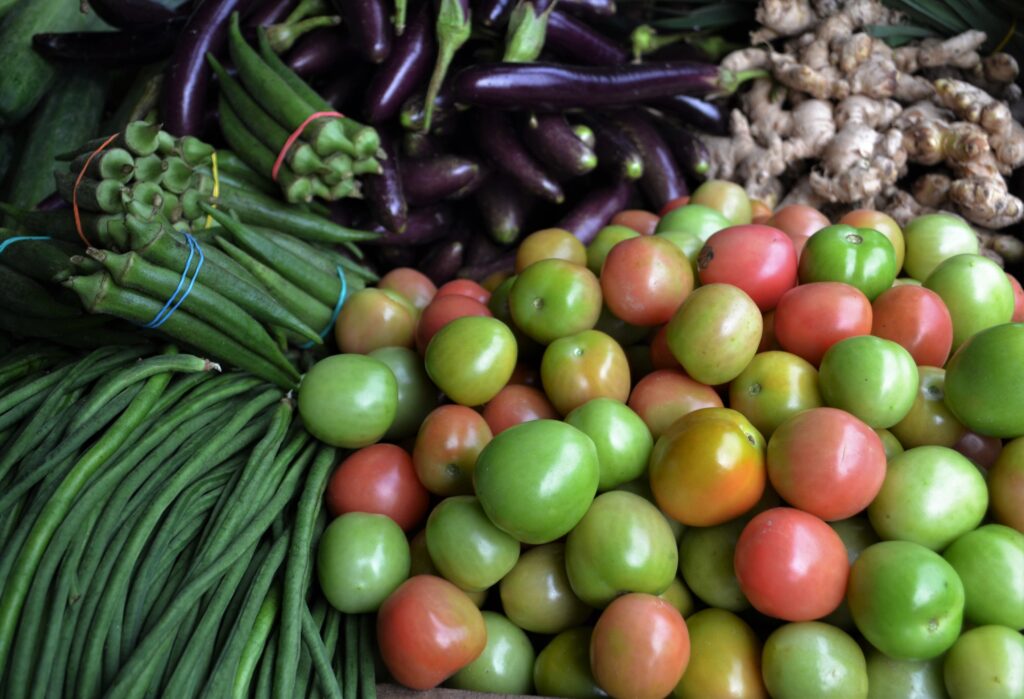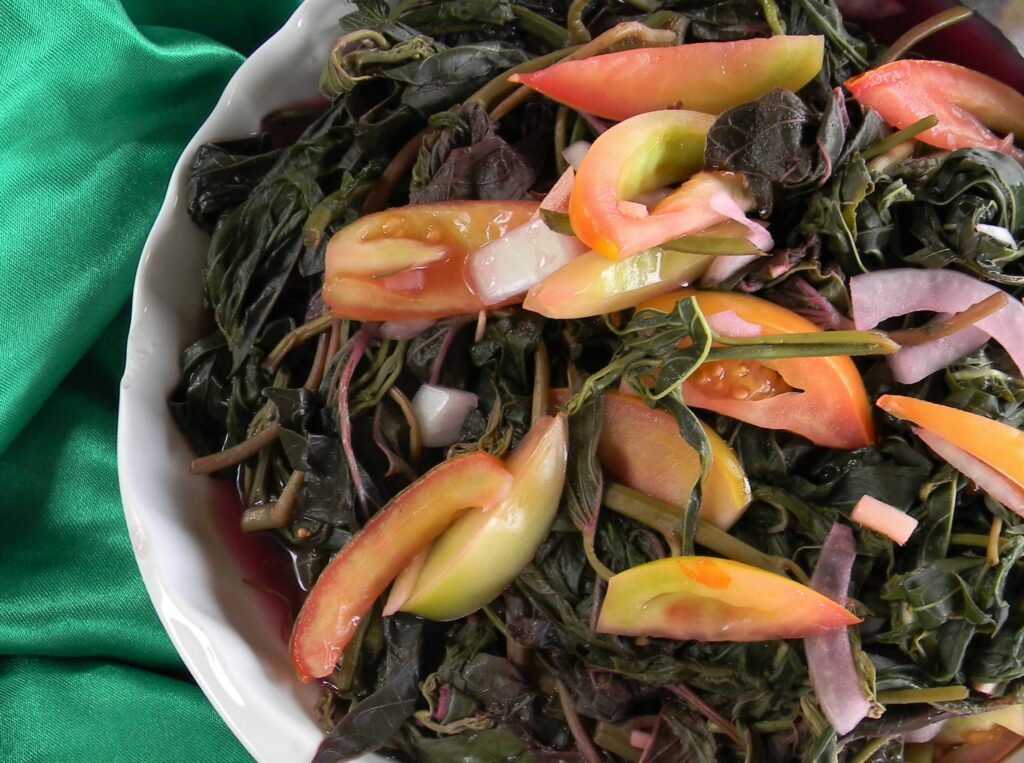Text and Photos by Henrylito D. Tacio
What do American boxer Timothy Bradley, Jr., UFC’s Mac Danzig and Jake Shields, WWE’s Daniel Bryan, women’s boxing champ Maureen Shea, Ironman triathlete Brendan Brazier, Home Run Derby winner Prince Fielder, marathon runner Scott Jurek, hockey’s Georges Laraque, “Olympian of the Century” Carl Lewis, NFL Hall of Famer quarterback Joe Namath, tennis champion Martina Navratilova, bodybuilder and four-time Mr. Universe winner Bill Pearl, Ultraman Rich Roll, basketball’s John Salley, snowboarding champion Hannah Teter, and football star Ricky Williams have one thing in common?
These are just some of the famous athletes who have tried a vegetarian diet, that’s what.
There were some stories that the reason why Timothy Bradley Jr. defeated Manny Pacquiao on their June 10, 2012 fight was because of the former’s vegan diet. That was what the People for the Ethical Treatment of Animals (PETA) Asia believed. In a press statement, PETA said that “plant-powered athletes, such as Bradley, pack quite a punch.”
It was learned that months before the bout, Bradley adopted a vegan diet, eschewing animal products entirely. The decision was based on an adviser’s request for Bradley to switch to greens prior to a fight in London in 2008.

Vegetables for sale 
Winged bean
“My thoughts are clearer, crisp. I am sharp. Everything is working perfectly – I feel clean,” the American professional boxer was quoted as saying. According to an article that appeared in the Wall Street Journal, Bradley reportedly followed a strict vegan diet for three months before a fight, but not all year round.
“Vegetarian diets provide all the protein athletes need without all the artery-clogging saturated animal fats and cholesterol found in meat, giving meat-free fighters the energy to go the distance,” PETA said.
Unlike animal protein, plant-based protein sources are easily absorbed by the body and contain healthy fiber and complex carbohydrates, PETA claimed. “Vegan athletes stay lean and build muscle without slowing themselves down with cholesterol and saturated fat,” said PETA.
Even during Biblical times, it was proven that eating vegetables is healthier than eating meat. In the book of Daniel, the prophet did not want to defile himself by eating the “royal food and wine.”
So, he asked the guard who took care of him and his three companions (Shadrach, Meshach, and Abednego) to give them nothing “but vegetables to eat and water to drink.” He told the guard: “Then compare our appearance with that of young men who eat the royal food.” The guard agreed and tested them for ten days.
Daniel 1:15-16 said: “At the end of the ten days they (Daniel and his companions) looked healthier and better nourished than any of the young men who ate the royal food. So the guard took away their choice food and the wine they were to drink and gave them vegetables instead.”
Those who eat more vegetables and less meat are most likely to live longer than their counterparts. According to a new study, people who limit how much meat they eat and stick to mostly fruits and vegetables are less likely to die over any particular period of time.
“I think this adds to the evidence showing the possible beneficial effect of vegetarian diets in the prevention of chronic diseases and the improvement of longevity,” Dr. Michael Orlich, the study’s lead author from Loma Linda University in California, was quoted as saying by Reuters.
Previous research done in the United Kingdom suggested that vegetarians are one-third less likely to be hospitalized or die from heart disease than meat and fish eaters. “We’re able to be slightly more certain that it is something that’s in the vegetarian diet that’s causing vegetarians to have a lower risk of heart disease,” said Dr. Francesca Crowe, who led the study at the University of Oxford.
“If people want to reduce their risk of heart disease by changing their diet, one way of doing that is to follow a vegetarian diet,” Dr. Crowe added.
In his book, How to Live Longer, Dr. Willie T. Ong suggests eating green leafy vegetables. “Green leafy vegetables,” he explains, “contain vitamins, minerals, and fibers known to provide health benefits. Vegetables are beneficial for people with heart disease, high cholesterol, high blood pressure, diabetes, bowel problems, and various cancers.

Camote tops with tomato
“Vegetables are also excellent diet foods because they’re low in fact and high in fiber,” adds Dr. Ong, an internist-cardiologist. “Locally, we have cabbage, pechay, broccoli, kangkong, and spinach. If you want to live longer, it pays to be less carnivorous and more herbivorous.”
Of the vegetables he mentioned above, Dr. Ong considers broccoli as the star. “A cup of broccoli (146 grams) provides a wide range of nutrients,” he points out. “These include 46 calories (won’t make you fat), 4.6 g protein, 8.7 g carbohydrates, 6.4 g fiber, 178 g calcium, 1.8 mg iron, 50 ug vitamin A, 0.13 mg thiamin, 0.32 mg riboflavin, 1.18 mg niacin, 0.9 mg vitamin B5, 0.27 mg vitamin B6, 90 ug folate, and 98 mg vitamin C.”
The US Department of Agriculture says broccoli has more vitamin C than an orange and as much calcium as a glass of milk. One medium-sized stem has three times more fiber than a slice of wheat bread.
Dr. Ong also recommends tomato, which Time magazine listed as one of its top fruits (although it is considered a vegetable in the Philippines). “Raw tomatoes and those found in ketchup and sauces may reduce the risk for heart disease, prostate cancer, and other cancers of the digestive tract,” he informs. “Tomatoes are extremely high in antioxidants, especially carotenoids like beta-carotene and lycopene.”
For Filipinos with mild diabetes, Dr. Ong suggests eating ampalaya but still continuing their regular medications. “Ampalaya contains a hypoglycemic polypeptide, a plant insulin, responsible for its blood sugar lowering effects,” he explains. “Others suggest it can help in detoxification and boosting one’s immune system.”
Beans are another good food for diabetics. “A half cup of cooked beans daily can reduce cholesterol,” says Dr. Ong, who considers beans as inexpensive sources of soluble fiber, iron, folic acid, magnesium, phosphorus, potassium, and thiamine. Beans are also touted as “poor man’s source of protein,” not mentioning that they’re low-fat, low-salt, and have zero cholesterol.
“Beans contain phytonutrients that may help prevent heart disease and cancer,” Dr. Ong says. “It also contains protease inhibitors, which help prevent the development of cancer cells. Strict vegetarians will also benefit from large amounts of folic acid in beans, which can prevent birth defects and anemia.” However, people with gout or high uric acid levels must avoid beans.
Go vegetarian now. “Vegetarians live on average almost eight years longer than the general population, which is similar to the gap between smokers and nonsmokers,” says Kathy Freston, author, and health and wellness activist.

